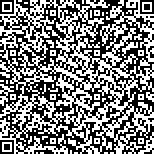| 摘要: |
| [摘要] 目的 回顾分析32 560例临床拟输血患者红细胞血型不规则抗体筛查及鉴定结果,为临床输血安全提供依据。方法 采用微柱凝胶法对32 560例患者进行不规则抗体筛查,并对筛查阳性者应用谱细胞鉴定抗体特异性。结果 在32 560例患者中筛查出不规则抗体160例,阳性率为0.49%,其中特异性抗体138例(86.25%),非特异性抗体22例(13.75%);女性患者不规则抗体阳性率(0.76%)高于男性(0.28%),差异有统计学意义(P<0.05);患者不规则抗体的产生与既往有妊娠和输血史密切相关(均P<0.05);血液系统疾病、妇产科疾病(含正常妊娠分娩产妇)及慢性肾脏疾病抗体筛查阳性率较高,分别为1.03%、0.95%和0.86%,而外科疾病不规则抗体阳性率(0.26%)较低。结论 输血前对患者进行不规则抗体筛查、鉴定,可了解其体内抗体产生情况及特异性,减少输血不良反应,提高输血的安全性和有效性。 |
| 关键词: 不规则抗体 抗体筛查 输血 |
| DOI:10.3969/j.issn.1674-3806.2018.08.24 |
| 分类号:R 446 |
| 基金项目: |
|
| Retrospective analysis of irregular antibodies of RBC blood type screening and identification in 32 560 patients with blood transfusion |
|
YAO Rui-ying, JING Chun-xu
|
|
Central Blood Station of Nanyang City, Henan 473000, China
|
| Abstract: |
| [Abstract] Objective To retrospectively analyze the irregular antibodies of RBC blood type screening and identification in 32 560 patients with blood transfusion, and to provide valuable information for transfusion safety. Methods The irregular antibodies were screened by microcolumn gel method in 32 560 patients before blood transfusion, and antibody identification was performed for the positive samples by spectral cell. Results 160 cases were screened out irregular antibodies (0.49%), in which specific antibodies were in 138 cases(86.25%) and non-specificity antibodies in 22 cases(13.75%). The positive detection rate of the irregular antibodies in the female patients(0.76%) was significantly higher than that in the male patients(0.28%) (P<0.05). The production of irregular antibodies was correlated with a history of pregnancy and blood transfusion (P<0.05). The positive rate was higher in the patients who had hematologic disease, gynecological and obstetric diseases(including normal pregnancy childbirth puerpera) and chronic renal disease, which accounted for 1.03%, 0.95% and 0.86%, but the positive rate was lower in the patients who had surgical diseases(0.26%). Conclusion Screeing and identification of irregular antibodies in the patients before blood transfusion is important for understanding the intracorporal situation and specificity of the patients, and can reduce the adverse reactions of blood transfusion, and ensure the safety and effect of blood transfusion. |
| Key words: Irregular antibodies Antibody screening Blood transfusion |

